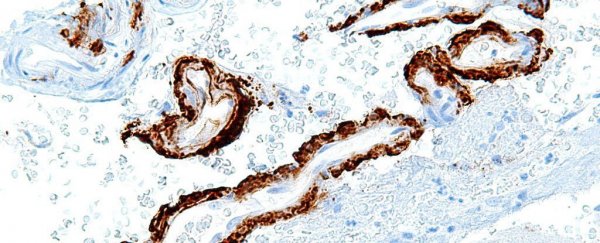One of the most common areas of research in the fight against Alzheimer's disease focuses on amyloid beta, the sticky proteins that clump together in the brain, forming plaques that choke nerve cells and impede regular neural functions.
In new research announced this week, scientists say they have discovered a compound that may be able to stop the body from making amyloid beta proteins in the first place. If they're right, it means we wouldn't need a cure for Alzheimer's - we might be able to prevent it outright.
The preliminary research hasn't been published yet, but the researchers have shared details of their work this week with colleagues at the Neuroscience 2015 conference.
Amyloid beta is produced in the brain by enzymes that divide a larger protein - the amyloid precursor protein (APP) - into smaller sections. In a process called dimerisation, which scientists don't fully understand, two APP proteins sometimes join together, resulting in the production of amyloid beta.
In the hope they might be able to prevent the creation of amyloid beta by affecting dimerisation, researchers led by Carmela Abraham, a professor of biochemistry and medicine at Boston University in the US, screened some 77,000 molecules and struck upon one that could be relevant – a kinase inhibitor, which blocks the activity of kinase enzymes.
"This was the big eureka moment," said Abraham. "Once we knew what the molecule was doing, we could search to see what kinase it inhibits and better understand the mechanism."
At this point, what the researchers understand about this compound is that it has an effect on a larger cell-signalling complex in the brain, but further research will be needed to find the specific, similar molecule or molecules that can act directly on APP. If they're successful, that discovery could be the basis of a medicine that stops Alzheimer's disease in its tracks, and the need has never been greater.
"Alzheimer's is now the number six killer of adults in the United States. Deaths from breast cancer and heart disease keep dropping, but Alzheimer's increases every year," said Abraham. "Caring for Alzheimer's patients costs over US$200 billion per year. The estimate for 2050 is US$1.1 trillion, which means it will completely break the health care system. We have to find a drug."
The research was presented at Neuroscience 2015.
